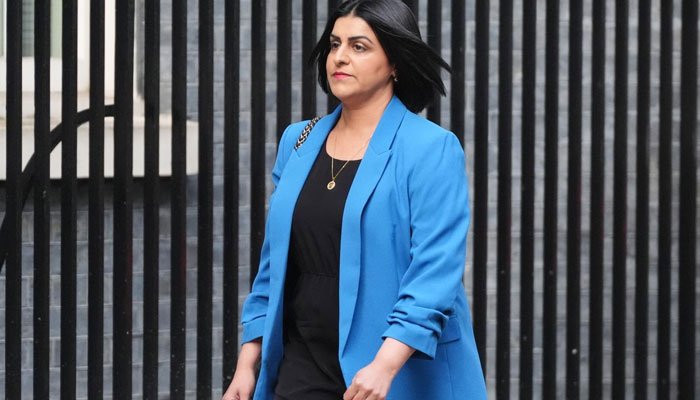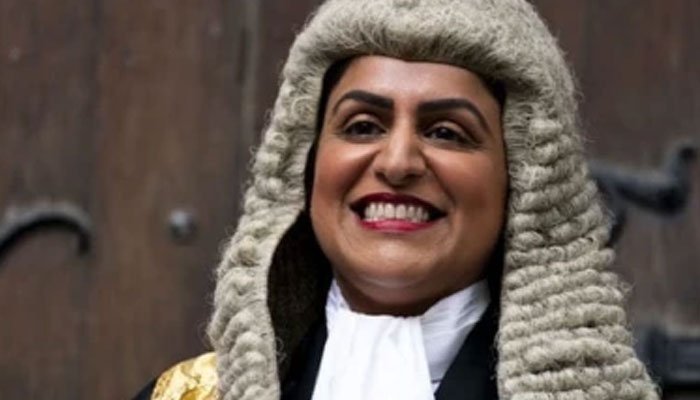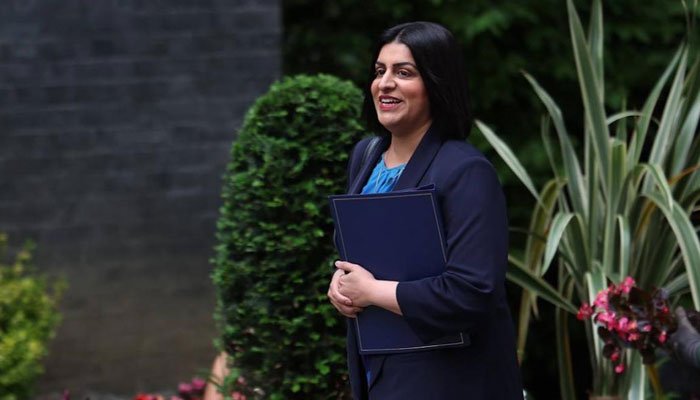Who is Shabana Mahmood? UK’s Pakistani-Muslim Appointed as Home Secretary. Prime Minister Keir Starmer has appointed Shabana Mahmood as the UK’s new Home Secretary. This marks a historic moment – Mahmood is the first person of Pakistani and Muslim origin to lead the powerful Home Office.
Her appointment follows the resignation of Angela Rayner from the role of Deputy Prime Minister after a property-related scandal. The Home Secretary oversees immigration, policing, and national security.
Earlier, British Deputy Prime Minister Angela Rayner had resigned after admitting she underpaid property tax on a new home. Her departure is a serious blow to Prime Minister Keir Starmer, who had earlier defended her.
“Honour of My Life”: Mahmood’s Statement
Mahmood expressed her commitment, saying, “It is the honour of my life to serve as Home Secretary. The first responsibility of the government is the safety of its citizens. Every day in this job, I will be devoted to that purpose.”
Background & Early Career
Born in Birmingham in 1980 to Kashmiri-Pakistani parents from Mirpur, Mahmood spent part of her childhood in Saudi Arabia before returning to the UK. She studied law at Lincoln College, Oxford, and became a barrister specialising in professional indemnity cases.

She entered politics in 2010, becoming an MP from Birmingham Ladywood. As one of the UK’s first female Muslim MPs, she quickly rose through the ranks, serving in various shadow cabinet positions, including Shadow Financial Secretary to the Treasury and Shadow Minister for Prisons.
Confronting Racism & Harassment
Throughout her political career, Mahmood has faced harassment and intimidation—first from some members of the local Pakistani community, and now from far-right extremists following her latest appointment. Despite these challenges, she remains steadfast in her work and advocacy.
In an earlier interview, she revealed that she had deliberately avoided speaking about this harassment to prevent discouraging other Muslim women from entering politics.
Track Record as Justice Secretary

Before becoming Home Secretary, Mahmood served as Justice Secretary and Lord Chancellor. She introduced legislation aimed at easing prison overcrowding and clearing the court backlog. Just last week, she presented a major prison reform bill in Parliament.
Her work also extended into immigration policy. She proposed changes to the law to allow the immediate deportation of foreign criminals who receive custodial sentences.
Stance on Immigration & National Identity
Mahmood supports balanced immigration policies. In response to Prime Minister Starmer’s comment that Britain risks becoming “an island of strangers,” she agreed with the sentiment. She emphasized the need for strong immigration rules and integration efforts.
“I believe in a nation of neighbours,” she said, reaffirming her alignment with Labour’s vision for a united and cohesive society.
Views on the European Convention on Human Rights
Mahmood has also called for reform of the European Convention on Human Rights (ECHR) to restore public trust. She recently told the Lords Constitution Committee that it is acceptable for ministers to question the UK’s interpretation of the treaty.
As Home Secretary, she will now handle key reforms related to Article 8 of the ECHR, which protects the right to private and family life. These changes, aimed at tightening its use in immigration cases, are expected this autumn.
Public Support & Political Influence

Lord Glasman, founder of Blue Labour, praised her appointment, calling it “fantastic” and describing Mahmood as “the leader of our part of the party.”
In her Birmingham constituency, where she has served for 15 years, Mahmood has faced misinformation, fake news, and misogynistic abuse. During the last election, her posters were torn down, and hate campaigns targeted her on social media platforms like TikTok and Instagram.
Despite the challenges, Mahmood remains one of the closest and most trusted allies of Prime Minister Starmer.
On Gaza & Palestine
Addressing the ongoing conflict in Gaza, Mahmood expressed deep concern over the humanitarian crisis. She acknowledged the suffering of innocent civilians and reaffirmed Labour’s stance in support of a two-state solution as the only path to peace.





